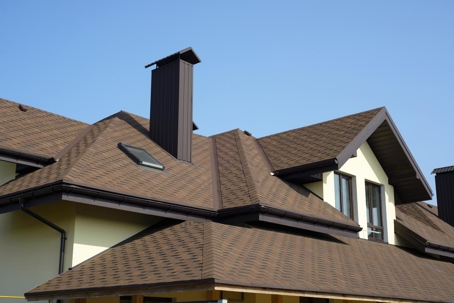When planning a roofing project, understanding the costs involved and how to budget effectively can help homeowners make informed decisions. Whether you’re installing a new roof or making repairs, knowing the various factors that influence pricing is essential. In this guide, we’ll break down the cost of a new roof, budgeting strategies for repairs and replacements, and hidden costs that homeowners often overlook. Consider our instant roof estimator to receive a free roof quote in minutes.
Understanding the Cost of a New Roof
The cost of a new roof in Connecticut can vary significantly based on several factors, including material type, roof size, labor costs, and additional structural considerations. Here’s a breakdown of the primary factors affecting roofing costs:
1. Roofing Material
Different roofing materials come with different price points. Here are some of the most common options:
- Asphalt Shingles – The most affordable and commonly used material, costing between $5,000 and $15,000 for an average-sized home.
- Metal Roofing – A durable and energy-efficient option, with costs ranging from $10,000 to $25,000.
- Slate or Tile Roofing – A premium choice known for longevity and aesthetics, often costing $15,000 to $40,000.
- Wood Shingles or Shakes – Offering a natural look but requiring more maintenance, typically costing $10,000 to $20,000.
2. Labor Costs
Labor accounts for a significant portion of roofing expenses, often making up 40-50% of the total cost. Factors that influence labor costs include the complexity of the installation, roof pitch, and accessibility.
3. Roof Size and Complexity
Larger roofs require more materials and labor, increasing costs. Complex roof designs with multiple slopes, dormers, or chimneys also add to installation expenses.
4. Permits and Inspections
In Connecticut, homeowners may need permits before replacing their roof. Permit fees range from $100 to $500, depending on local regulations.
How to Budget for Roof Repairs and Replacement
Roofing projects are a major investment, but careful budgeting can help manage expenses. Here’s how homeowners can financially prepare:
1. Get Multiple Quotes
Always obtain at least three estimates from licensed and insured contractors to compare pricing, services, and warranties.
2. Set Aside Emergency Funds
Unexpected roofing issues can arise, so setting aside 10-20% of your budget for unforeseen expenses is a smart financial move.
3. Consider Financing Options
Many roofing companies offer financing plans, or homeowners can explore options like home equity loans, personal loans, or credit lines to cover costs.
4. Prioritize Repairs Based on Urgency
If a full replacement isn’t immediately necessary, tackling smaller repairs can extend the life of your roof and allow for gradual budgeting.
5. Look for Seasonal Discounts
Roofing companies may offer discounts during off-peak seasons, such as late fall or early winter, when demand is lower.
Hidden Costs Homeowners Overlook
While most homeowners budget for materials and labor, some hidden costs can catch them by surprise. Here are common overlooked expenses:
1. Structural Repairs
If underlying damage is discovered during installation, such as rotting wood or sagging supports, additional repairs can add $1,000 to $5,000 to the total cost.
2. Roof Removal and Disposal Fees
Tearing off an old roof isn’t free—removal and disposal costs range from $1,000 to $3,000, depending on the number of layers and material type.
3. Upgraded Ventilation or Insulation
Improper ventilation can lead to moisture buildup, reducing the lifespan of your roof. Adding insulation or ventilation can cost an additional $500 to $2,000.
4. Permit and Inspection Fees
As mentioned earlier, local regulations may require permits and inspections, which add to overall expenses.
5. Warranty Considerations
Some warranties require additional purchases, such as underlayment upgrades or specific installation techniques, which can increase costs.
Final Thoughts
Understanding what roofing costs in Connecticut entail is crucial for making informed decisions about roof repairs and replacements. By considering material choices, labor expenses, and hidden fees, homeowners can budget effectively and avoid unexpected financial strain. Whether repairing minor damages or investing in a full replacement, planning ahead and consulting with professional roofing contractors can ensure a smooth and cost-effective roofing project.


